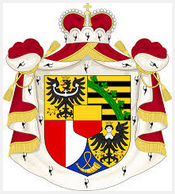The Principality of Liechtenstein published its 2014 annual report on its activities relating to international humanitarian cooperation and development, including an analysis of the state of negotiations on the post-2015 development agenda.
The report emphasizes the need for gender equality and rule of law to be strongly reflected in the forthcoming framework.
 June 2015: The Principality of Liechtenstein published its 2014 annual report on its activities relating to international humanitarian cooperation and development, including an analysis of the state of negotiations on the post-2015 development agenda. The report emphasizes the need for gender equality and rule of law to be strongly reflected in the forthcoming framework.
June 2015: The Principality of Liechtenstein published its 2014 annual report on its activities relating to international humanitarian cooperation and development, including an analysis of the state of negotiations on the post-2015 development agenda. The report emphasizes the need for gender equality and rule of law to be strongly reflected in the forthcoming framework.
In his analysis for the annual report, Claudio Nardi, Office for Foreign Affairs, notes that the lack of an effective review mechanism was one of the main disadvantages of the Millennium Development Goals (MDGs). He stresses the need for an effective review mechanism on the Sustainable Development Goals (SDGs), as well as simple reporting that relies especially on existing reporting obligations. Nardi also advocates for a short, easy and understandable declaration in the post-2015 agenda that assigns special importance to human rights and the rule of law, expressing concern that elements of gender equality and the rule of law continue to be challenged and watered down in current negotiations.
The annual report contains a foreword by Phumzile Mlambo-Ngcuka, Executive Director of UN Women, highlighting the outcomes of the 20-year review of the Beijing Declaration and Platform for Action. She draws attention to five priority areas for accelerating progress toward gender equality in the post-2015 context: transforming discriminatory social norms and gender stereotypes; transforming the economy to achieve gender equality and sustainable development; ensuring the full and equal participation of women in decision making at all levels; significantly increasing investment in gender equality; and strengthening accountability for gender equality and the realization of the human rights of women and girls.
Liechtenstein spends around 0.75% of its Gross National Income (GNI) on official development assistance (ODA), based on available 2012 figures, and provided 25 million CHF to ODA in 2014. [Publication: International Humanitarian Cooperation and Development – Annual Report 2014] [Liechtenstein Office for Foreign Affairs Website (in German)]